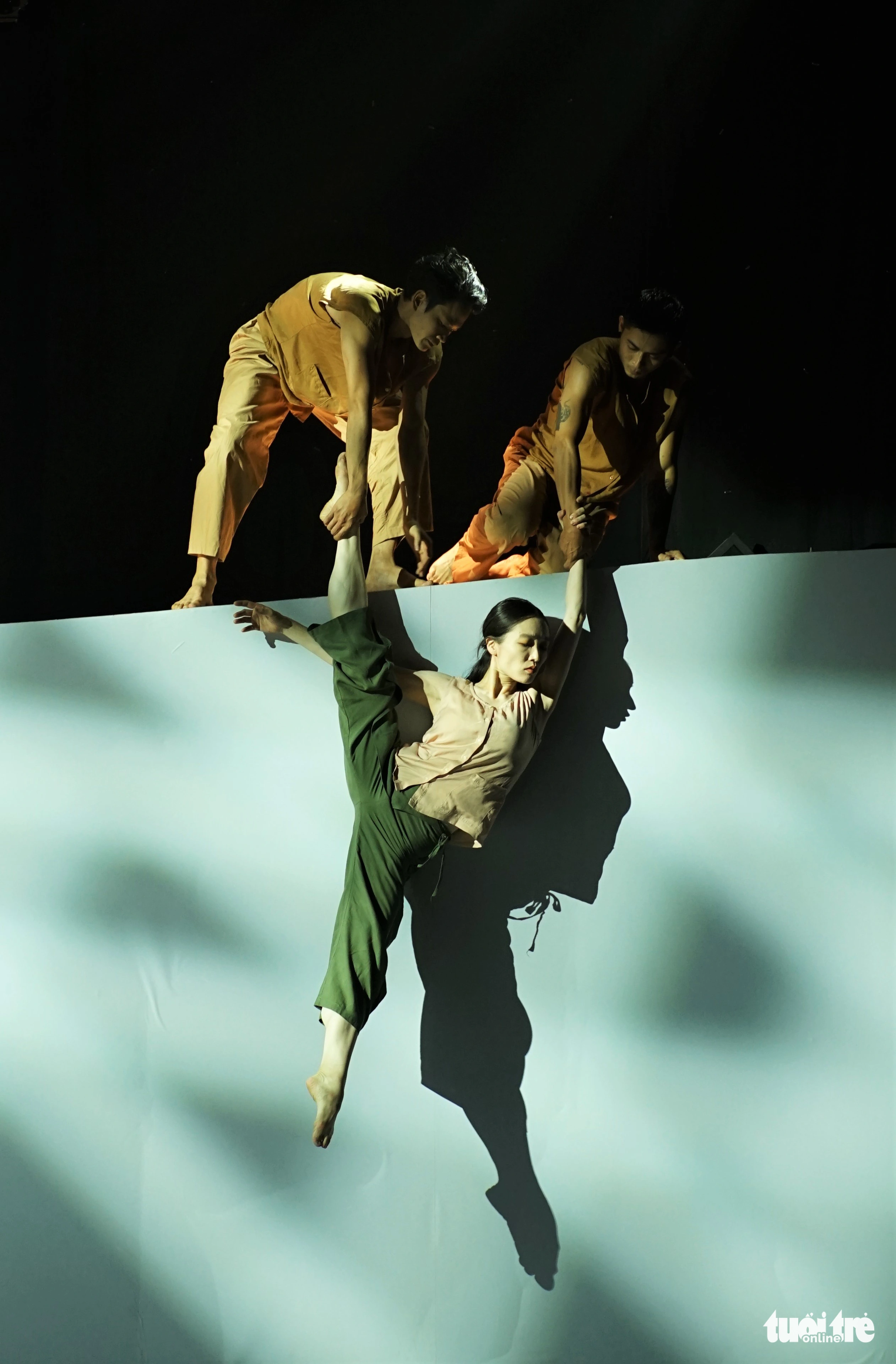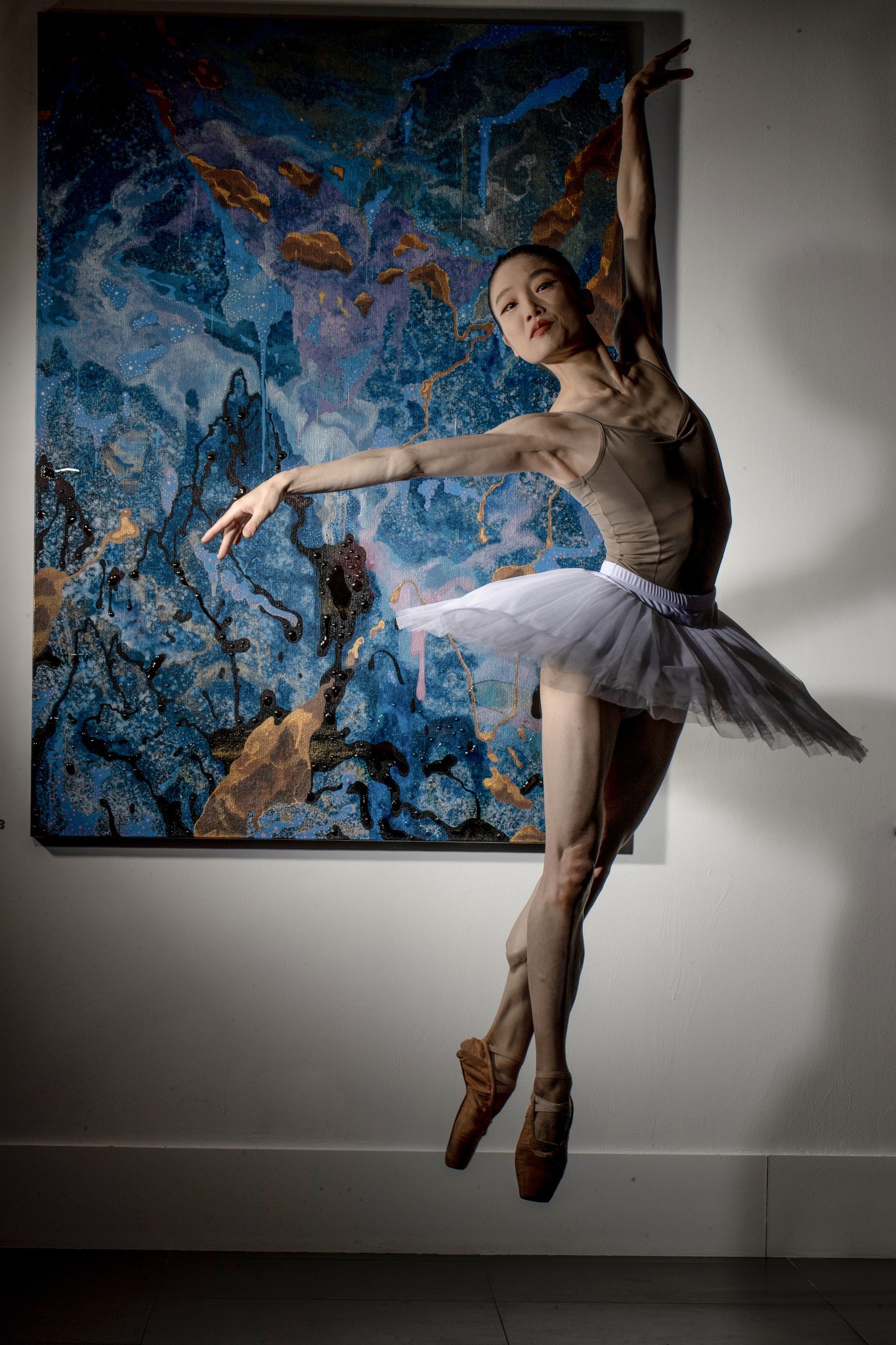Tatsumi was born in Japan and studied dance in China for five years.
Afterwards, she continued her education in the Netherlands for four years and stayed an additional two years to work.
“After spending six years in the Netherlands, I started thinking about moving somewhere else to explore new challenges,” the 32-year-old artist recalled events from eight years ago.
“I heard that Arabesque Vietnam’s art director, Nguyen Tan Loc – whom I had known during my time in Japan – was looking for new dancers with a strong classical technique.
“So I simply reached out to him on Facebook, and that’s how my journey to Vietnam began.”
|
|
| Tatsumi Chika is seen performing onstage. Photo: Huynh Vy / Tuoi Tre |
A memorable and inspiring trip
Vietnam, as the country where Tatsumi has lived the longest after Japan, holds many memories for her.
One of the most memorable experiences was her first trip to the Mekong Delta, which provided numerous surprises for a foreign woman.
Around 2016, Tatsumi and her dance company visited Can Tho and Soc Trang Provinces to immerse themselves in local life, seeking inspiration and practical experience for their performance of ‘The Mist.’
During this time, she and her team slept on the floor, hand-washed clothes, walked barefoot into the fields to catch snails, hugged a banana tree, crossed a river on foot (as she did not know how to swim), and explored gardens to pick fruit without prior knowledge of the varieties.
This experience gave them a unique perspective on the region’s lifestyle.
And especially, it was the first time she ate a rat in her life.
“At first, I was shocked. Really. I was like, ‘Are you gonna eat a rat?’ Because I had just come from Ho Chi Minh City, where I saw street rats as big as cats. Then I ate some. It had an amazing taste,” Tatsumi shared.
“I wanted to eat more. I just kept eating. And then they told me that the rats are meant to be eaten, so they only eat rice.”
This experience exposed Tatsumi to the cultural diversity within Vietnam and introduced her to new culinary perspectives.
Aside from the joyful memories, the picturesque sight of early morning fields covered in dew under the glistening sunlight deeply moved Tatsumi, allowing her to cultivate emotions for her stage performance.
‘The Mist’ tells the story of Vietnamese farmers, and this serene scene played a crucial role in infusing authenticity and emotion into her portrayal on stage.
The journey also made Tatsumi appreciate the resourcefulness of Vietnamese people, observing their ability to accomplish various tasks with minimal or no tools.
In her subsequent work, she noticed that even when faced with a shortage of equipment, people still found ways to make things happen.
This resilience and adaptability left a lasting impression on the Japanese artist.
|
|
| Tatsumi Chika is seen in a supplied photo taken by photographer Dai Ngo. |
‘Everything is still developing’
Leaving behind her career in the Netherlands, a developed country in Europe, to live in Vietnam worried Tatsumi’s mother.
However, the artist has her reasons. “We are Asians, so I feel very even,” she explained.
Above all, Vietnam is an ideal place for Tatsumi, not only because of its proximity to Japan, which allows her to easily visit home, but also due to the ongoing development and growth she witnesses in the country.
“Instead of jumping into level ten and having everything, it’s more interesting to see the whole development scenario,” she said.
“I think it’s challenging to me, and also the main reason why I wanted to come here.
“At first, I thought I would stay for around five years and then move to another place, but somehow with Arabesque, I couldn’t leave.”
For an artist like Tatsumi, the pressures, injuries, and days filled with practice from dawn till dusk, enduring tiredness and sore knees, are all compensated by the emotional tears or joyful expressions on the faces of the audience after the performances.






